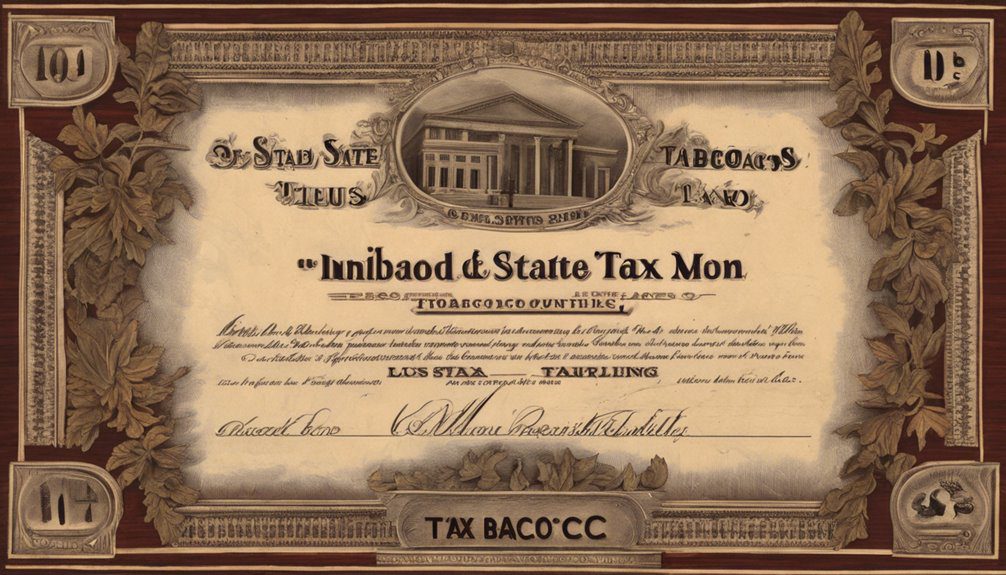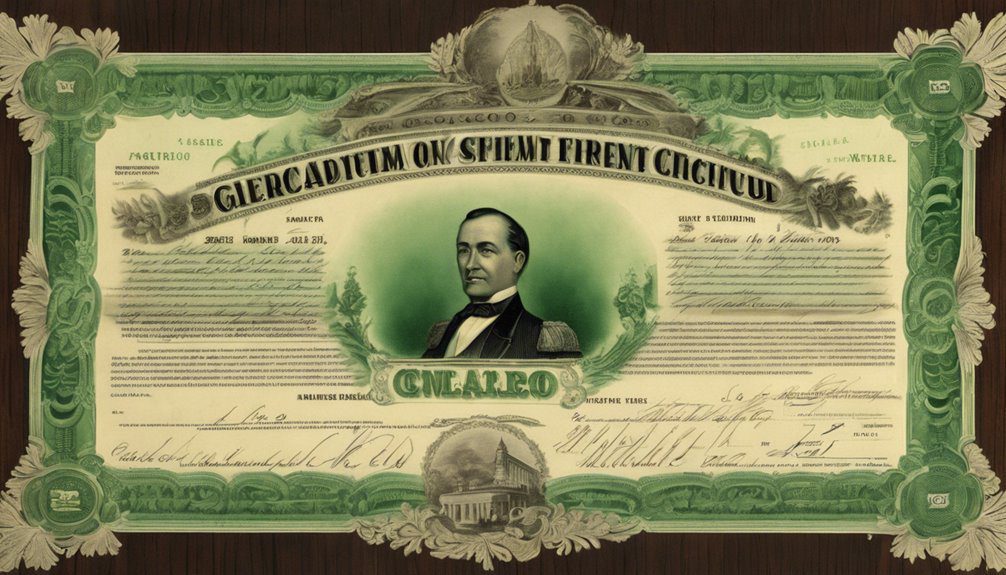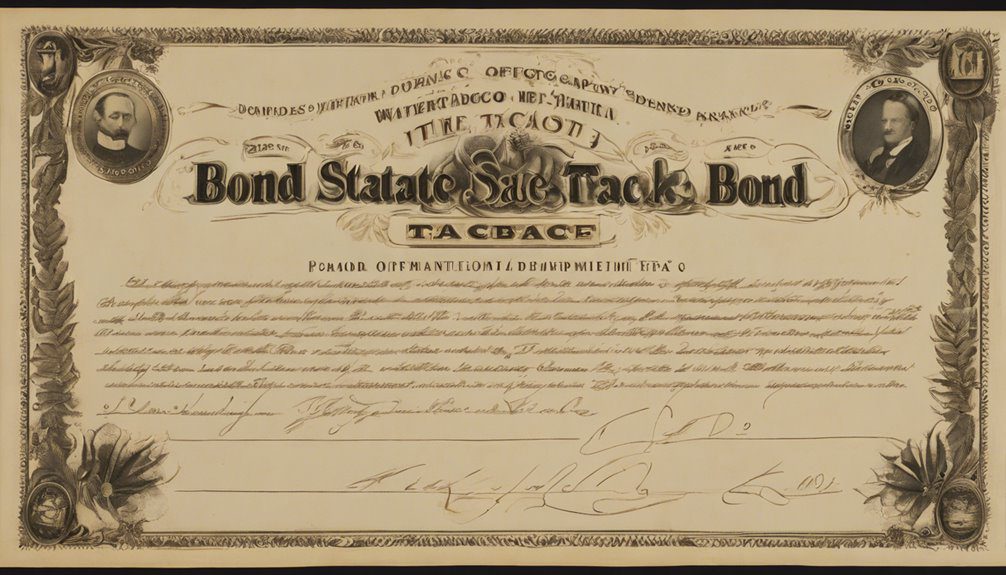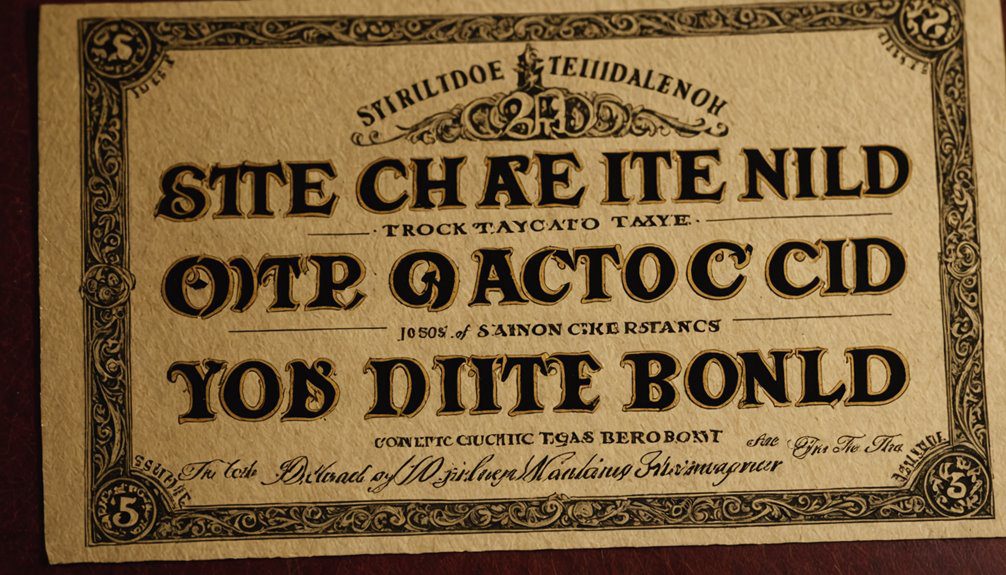If you're involved in the tobacco industry in South Carolina, understanding the State Tobacco Tax Bond is crucial for your operations. This bond not only serves as a financial guarantee for tax compliance but also plays a significant role in building trust with your partners and customers. You might wonder about the specifics of the application process or the consequences of non-compliance. Each detail matters and could impact your business in ways you may not anticipate. What are the key factors that could affect your eligibility and bonding amount?
Overview of Tobacco Tax Bonds

Tobacco tax bonds play a crucial role in the regulation of tobacco sales and the collection of taxes on these products. When you engage in the tobacco industry, whether as a manufacturer, distributor, or retailer, you're required to obtain a tobacco tax bond. This bond acts as a financial guarantee that you'll comply with state tobacco tax laws. Essentially, it protects the state from potential revenue losses due to unpaid taxes.
You'll find that the bond amount typically depends on the volume of tobacco products you sell, reflecting the anticipated taxes you owe. If you fail to pay these taxes, the state can claim against your bond to recover the unpaid amounts. This process ensures that businesses remain accountable and contribute to public funds.
Moreover, obtaining a tobacco tax bond can enhance your credibility with suppliers and customers, showing that you're serious about compliance. As you navigate the tobacco market, understanding the significance of these bonds will help you operate within the legal framework and avoid costly penalties.
Importance of Compliance
Navigating the complexities of the tobacco industry requires a firm commitment to compliance, especially when it comes to tax regulations. You need to understand that adhering to these regulations isn't just a legal obligation; it's essential for your business's reputation and longevity. Non-compliance can lead to severe penalties, including hefty fines and possible revocation of licenses, which could jeopardize your operations.
By staying compliant, you not only avoid these pitfalls but also build trust with your stakeholders, including customers and regulators. This trust can translate into a competitive advantage, as clients prefer businesses that play by the rules.
Moreover, adherence to tax regulations can streamline your operations, making it easier to manage finances and allocate resources effectively. Additionally, maintaining a cigarette tax bond demonstrates your financial reliability and commitment to fulfilling tax obligations.
You should also know that compliance often leads to better relationships with state authorities. When you demonstrate diligence in following tax regulations, you can often find that authorities are more willing to work with you on future issues.
Eligibility Criteria

To qualify for a state tobacco tax bond, businesses must meet specific eligibility criteria set forth by regulatory authorities.
First, you need to be a licensed distributor or retailer of tobacco products in your state. This means you've got to hold the appropriate permits and comply with local regulations.
Next, your business must demonstrate a history of compliance with state tobacco tax laws. If you've faced any violations in the past, it could affect your eligibility.
Additionally, you'll need to provide financial information that proves your business has the capacity to meet any tax liabilities, which may include submitting financial statements or tax returns.
Your business should also show that it has a clean legal standing, meaning no pending lawsuits or significant legal issues that could jeopardize your ability to pay taxes.
Application Process
Once you've confirmed your eligibility, the next step is the application process for a state tobacco tax bond. Start by gathering all necessary documentation, including your business license, tax identification number, and any other required permits. These documents will help verify your identity and your business's legitimacy.
Next, you'll need to fill out the application form provided by the bonding company or surety provider. Make sure to complete every section accurately; incomplete applications can lead to delays. Once your application is filled out, submit it along with the required documentation.
After submission, the surety company will review your application. They may conduct a background check to assess your financial stability and credibility. Be prepared to provide additional information if requested, as this can help expedite the process.
Once your application is approved, you'll receive a bond quote. Review the terms carefully before signing any agreements. Remember, you're committing to the bond's obligations, so it's important that you understand what you're agreeing to.
Once everything is finalized, you'll be issued your state tobacco tax bond, allowing you to operate legally.
Bond Amount Requirements

When applying for a state tobacco tax bond, it's crucial to understand the bond amount requirements. Each state has specific regulations that determine how much coverage you'll need, and South Carolina is no exception. Typically, the bond amount is set based on your anticipated tobacco tax liability, which can vary depending on your sales volume and the types of products you sell.
In South Carolina, the bond amount usually ranges from $10,000 to $50,000, but this can change based on your business's unique circumstances. You'll want to calculate your expected tax obligations carefully to ensure you're applying for the correct amount.
If you're unsure about the specific requirements, it's a good idea to consult with a bonding agent or the state's revenue department.
Keep in mind that obtaining a bond at the right amount is essential for compliance and to protect the state's interests in tax revenue. If you underestimate your bond amount, you may face complications down the line.
Therefore, take the time to assess your needs accurately and choose a bond amount that reflects your business's tax obligations.
Consequences of Non-Compliance
Non-compliance with state tobacco tax regulations can lead to serious consequences for your business. First and foremost, you might face hefty fines and penalties that can significantly impact your bottom line. These financial repercussions can accumulate quickly, especially if violations are repeated or if your business is deemed a habitual offender.
Additionally, failure to comply can result in the suspension or revocation of your tobacco license. Without this license, you won't be able to legally sell tobacco products, which can severely disrupt your operations and customer base.
Moreover, state authorities may conduct audits, which can be time-consuming and costly. If they find discrepancies, you could be required to pay back taxes along with interest, further straining your financial resources.
Your business's reputation may also suffer if customers learn about your non-compliance. Trust is crucial in retail, and losing that can result in decreased sales and long-term damage to your brand.
Frequently Asked Questions

Navigating state tobacco tax regulations can raise many questions for business owners. You might wonder what a state tobacco tax bond is and why it's necessary. Essentially, this bond ensures that you'll comply with state tax laws, protecting the state from potential revenue loss due to non-compliance.
Another common question is about the bond amount. The required bond amount usually depends on your estimated tobacco tax liability. It's essential to check with your state's regulations to determine the exact figure.
You may also ask how long you need to maintain the bond. Generally, you'll need it for as long as you operate your tobacco business and are required to pay taxes. If you stop selling tobacco or can prove you've fulfilled all tax obligations, you can often cancel the bond.
Lastly, you might be curious about the application process. It typically involves submitting an application to a surety company, providing necessary documentation, and paying a premium.
Understanding these aspects will help you navigate the process smoothly and ensure compliance with state tobacco tax laws.
Conclusion
In summary, obtaining a South Carolina State Tobacco Tax Bond is essential for your business if you're involved in the tobacco industry. It not only ensures compliance with state regulations but also boosts your credibility with customers and suppliers. By understanding the requirements and maintaining adherence to tax obligations, you can avoid severe penalties and foster a trustworthy reputation. Don't underestimate the importance of this bond—it's a vital step toward securing your business's future and stability.

